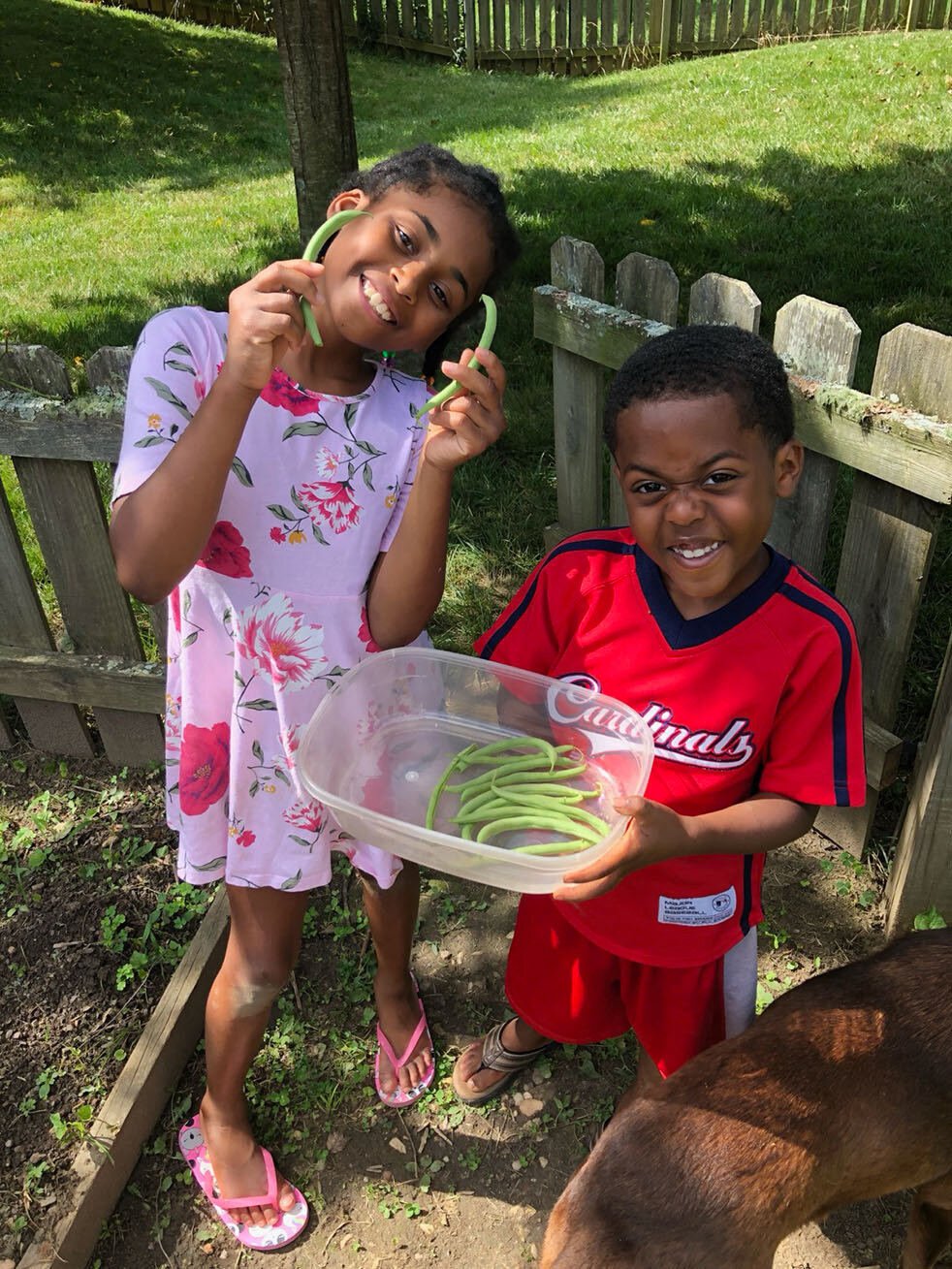Enhance your child’s literacy skills with garden-based learning
The garden is the perfect place to spend time with the children in your life. Full of surprises, curiosities and wonders, the garden enriches the bond between you, fosters a sense of responsibility for the environment, and offers opportunities to develop fine and gross motor skills. In addition to all these benefits, the garden provides the perfect setting for learning. With a little bit of planning, you can skillfully promote literacy skills.
Language is the principal method of human communication. Rich conversations with children support their understanding of the world and enhance their cognitive abilities. Literacy is the ability to read, write, speak, listen and comprehend in a way that lets us communicate effectively and make sense of the world. The garden is rich with opportunities to develop skills such as learning new vocabulary, ecological concepts, math skills (counting and probability) and the scientific method.
This article provides a list of fun activities to try in the garden with children. Remember to be safety-minded when gardening together with your child, because accidents can happen at unexpected times. Be sure to set realistic expectations. When purchasing plants, use safe and nontoxic plants. Reliable educational sources, such as the “Poisoning Primer for Parents and Educators” at chop.edu/poisoning provides lists of poisonous and invasive plants.
Indoor gardening activities
Reading about the garden makes words come to life — especially when paired with gardening activities. Create a “Reading Corner.” Fill a bin with books about gardening and nature; include picture books. Read aloud to your child, as this builds background knowledge, improved vocabulary and listening skills. Ask questions about the reading. Increase vocabulary knowledge by showing or writing gardening words on cards or a chart. Read seed packets and file them alphabetically.
Put a fun pillow on the floor to invite uninhibited journal writing. Suggest that you both write about your gardening experiences and share. Use a small table or tray for coloring pictures of flowers, plants and trees. Make posters, signs and labels for the various plants.
Experiment indoors with growing a vegetable. Start a tomato seed planting project in egg cartons. Transplant seedlings and determine a watering schedule and care. Grow sweet potatoes in a jar. Make “How To” signs or charts about planting and caring for seeds and plants. Track the growth of seedlings and plants on a chart.
Create your own coloring pages. For example, draw (or have your child draw) a plant and label the plant parts. Free coloring pages are also available on Pinterest, under “Gardening coloring pages for kids.”
Outdoor gardening activities
Conduct a scavenger hunt or insect safari. Give pictures of insects, plants, particular shapes, patterns or colors to the child for them to search for outside. Alternatively, have them discover different insects or plants and try to research their names.
Create art projects out of garden materials. Paint stones and add words to the surface. Make a bird feeder, fill with food, hang, and observe the birds over a period of time. Create a nature mobile by collecting objects (various leaves, pine cones, acorns, stones), perhaps paint or decorate them with beads, and tie them together, using a hanger made from branches.
Involve your other senses. Play a listening game where everyone closes their eyes and tries to identify different sounds, such as the songs of birds, the buzzing of insects, or the wind through the trees. With eyes still closed, try identifying different fragrances and textures.
Start a small-scale garden of a 4-foot by 4-foot area: Prepare the area by digging up any unwanted vegetation, turn the soil over and mix in a bag of compost or organic soil. Demonstrate how to dig a small hole, then plant the seeds or seedlings, cover them with soil, then water and create a watering schedule.
Visit parks, nurseries, or any natural setting. Encourage your child to observe and ask questions.
Children are constantly learning beyond the four walls of the classroom. Gardens are where the imaginations of children engage in nature, and the result is joyful learning. Gardening with children not only enriches your relationship with them, but offers countless natural opportunities to model, encourage, and build authentic language and literacy skills.
For questions on this subject or any gardening topic call the Master Gardener Helpline: In New Castle County, 302-831-8862; in Kent County, 302-730-4000; and in Sussex County, 302-831-3389.
For information about master gardener workshops, visit: udel.edu/master-gardeners and click on Gardener Workshops.
EDITOR’S NOTE: Faith Fitzgerald-Loper spent 30 years as a K-12 public school educator working as a classroom teacher, reading specialist, and director of curriculum.
Members and subscribers make this story possible.
You can help support non-partisan, community journalism.
Other items that may interest you







